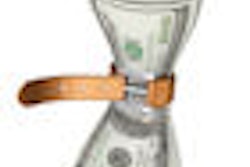
The agency that runs California's Medi-Cal program wants community clinics to pay back money that was used for adult dental services within the last year following a legal dispute about benefit cuts to the program.
The state cut coverage for optional Medi-Cal benefits, including dental (Denti-Cal) and podiatry services, in 2009 in response to budget shortages. Community clinics then sued, claiming the state didn't follow the administrative process correctly with the federal government to initiate the cuts. A judge then issued an injunction against the cuts in October 2010.
In May 2011, the U.S. Centers for Medicare and Medicaid Services (CMS) approved California's request for the cuts, backdated to July 2009. Now the state Department of Health Care Services (DHCS), which oversees Medi-Cal, wants the money back it paid to clinics for dental services between October 2010 and May 2011.
“We're struggling.”
— Jennette Lawrence Shay, Family
Health Centers of San Diego
Clinic directors are now scrambling to figure out how to pay back hundreds of thousands of dollars that they spent on dental services during the seven-month period, money which they say will devastate their ability to provide care to the needy.
"We're struggling," Jennette Lawrence Shay, director of government and community relations for the Family Health Centers of San Diego, told DrBicuspid.com. "If someone has an infection or an urgent crisis, our mission is to serve the poor and deliver the care they need."
Her organization, which provides medical, dental, and mental health services, operates 30 sites in San Diego County. The clinics provided Medicaid dental services to 1,700 patients from October to May and could be facing a bill of about $850,000.
"Either a patient is eligible for certain benefits or they're not," Lawrence Shay said. "In the world of clinical care, if a patient is on Medi-Cal and dental coverage is included in their benefit package, then we need to bill Medi-Cal for their care."
According to the DHCS, providers were notified that optional benefits, which included adult dental, were eliminated in the budget process effective July 1, 2009.
Therefore, "providers were not allowed to bill for these services starting on that date," the agency wrote in an email to DrBicuspid.com. "When the court injunction was issued in October 2010, clinics were notified that if they provided the services covered by the injunction and billed DHCS, they would be doing so at the risk of recovery of funds by DHCS."
The DHCS also referred to a September 30 notice sent to Medi-Cal providers explaining the situation. "DHCS intends to recoup payments made to federally qualified health centers and rural health clinics for excluded adult dental, chiropractic, and podiatric services provided on or after July 1, 2009," the email concluded.
Lawrence Shay said her group has already sent letters to the state Legislature asking for help.
"We want our legislators and the community to know that this is not right," she said. "We're in an impossible situation because there's not enough funding to cover staffing, supplies, and the services that our most vulnerable patients need. It will bring us to our knees if we have to pay back money we've already received for reimbursements for services rendered."
Marty Lynch, PhD, executive director of LifeLong Medical Care in Berkeley, said his organization provides a range of care to about 23,000 low-income and homeless adults each year. He estimated the organization will owe about $400,000 worth of dental services.
"It's pretty shocking," he told DrBicuspid.com. "It's a breach of good faith with the health centers who are working with the state. It's going to cut way into our services, especially the ability to provide dental care."
After the Denti-Cal program was cut in 2009, Lynch had to downsize the dental clinic at LifeLong and lay off staff.
"We felt badly about it because these people don't have a lot of money, but we wanted to keep some capability to provide dental services," he said.
Most of the clinic's patients are disabled or elderly who have chronic medical problems and live on $11,000 to $14,000 per year. "So it's hard for people to come up with payments for dental care when they're having trouble eating," he explained.



















